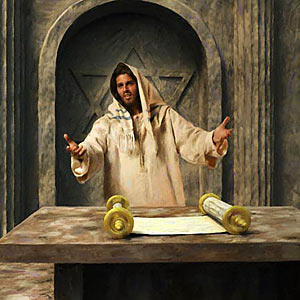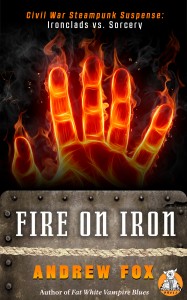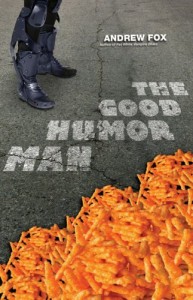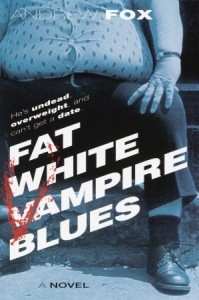Yesterday, Christmas Eve, I wanted to return at least a small portion of the kindness my family has received from our neighbor Larry, whom I have described (to his embarrassment) as “a perfect Christian gentleman.” He invited us to come hear him sing in his choir at the Potomac Ridge Baptist Church. Since Dara would be in Falls Church, visiting Levi, it would be up to me to take Judah and Asher to the church service.
I took a Buspar pill for what my doctor has described as “anticipatory breakthrough anxiety.” I knew I would be driving to a church I’d never seen in the dark, that Judah would probably act out as least as badly as he does at services at our own synagogue, and that I would have to arrange for Dara, Larry and Nora, and the boys and me to meet at a Chinese buffet (an “old Jewish-American Christmas tradition”) after the service, with us all arriving at different times. So I knew to expect stress. I got all the stress I expected. What I didn’t expect was to experience a fleeting but precious satori, or moment of insight.
I know some readers will read the words “Buspar” and “satori” in the same paragraph and think to themselves, “hrrmmmm… This is a perfectly expected and acceptable reaction. Religious insight achieved under the pressure of mental illness may properly be viewed with mistrust. However, an equally acceptable, logical, and scientific explanation of such an event may be that mental illness opens new neural pathways in the brain which give access to thoughts and insights which were not previously reachable by an individual. In any case, my insight had been building slowly all day, since many hours before I had swallowed my “anticipatory breakthrough anxiety” Buspar pill.
Much of the open discussion in my therapy group yesterday morning ended up revolving around matters of faith. One young man, unmoored in any particular faith tradition, had asked those of us in the group who had strong connections to a faith to explain how we still believe in G-d’s presence when evil is also present. The answer I provided was that I live in a state of constant religious doubt. When I am able to feel optimistic, I can sense G-d’s presence all around me. When I am mired in pessimism or depression, however, it can be almost impossible for me to trust in the sureness of G-d’s presence. I told the story of how my overhearing the news several weeks ago that Secretary of State Kerry had signed a nuclear accord with Iran’s ayatolahs, allowing them to proceed with their uranium enrichment programs after so many years of misdirection and running out the clock, had driven me into a tailspin. Given that Iran’s leaders for years have bragged about their approaching ability to wipe out Israel with a “single bomb,” news of this new diplomatic accord sent me reeling into a fresh panic attack. I found myself unable to trust G-d… I felt that, since G-d had not stepped in personally to prevent the original Holocaust, a second Holocaust would inevitably follow from President Obama’s and Secretary of State Kerry’s fecklessness and over-eagerness for an accord. I despaired. When I related this story to another friend of mine, he had wisely counseled me, “Pray for optimism…” which means, “Pray for the ability to believe in G-d’s presence.”
Not wanting to end my story to my therapy partner on a down note, I related another story, one I had experienced in ninth grade, during perhaps the lowest point of my life, when a plague of bullying from fellow students had set off all sorts of noxious Asperger’s Syndrome defensive reactions in me, and I was seriously considering dropping out of school altogether. One afternoon, when I had taken refuge in the quiet and solitude of the school’s library, a young man whom I had never seen before approached me. He said two short sentences to me: “We aren’t all bad. We don’t all mean to do evil to you.” He was referring to the large population of junior high students who had tormented me over the past three years. Then he walked away, and I never saw him again. After hearing him speak, my Asperger’s Syndrome zone of madness faded quickly. I was able to start fresh at North Miami Senior High School with far fewer visible symptoms of being disturbed and was able to gain many wonderful new friends, a number of whom remain my close friends to this day. I came to the conclusion that the mysterious young man had been an angel sent by G-d to relieve my madness. I realized, of course, that his arrival and cryptic statement to me could have been a “mere coincidence,” that he had been observing me from afar and had made an independent, compassionate decision to intervene in my life. Yet even that suggested G-d’s influence, if not direct involvement.
As a writer and a storyteller, I have come to the firm conclusion that storytelling is a partnership. The writer originates the meaningful signals, but a reader must be present to decode those signals and to add his or her memories, experiences, and sensory images to the story in order for the act of storytelling to be complete. I realized that by choosing to interpret the young man’s intervention the way I had, as one of G-d’s mysterious interventions, I was allowing the act of storytelling to be complete — G-d had told the story, and I had chosen to interpret my experience of that story as being G-d’s story, directed to me specifically. This is what I explained to my therapy partner. Man is always caught between the evil inclination and the good inclination. Giving in to the evil inclination is aided and abetted by a refusal to play the role of a G-d-sent story’s recipient. Accepting the good inclination is assisted by a willingness to be G-d’s storytelling partner. As human beings, we are constantly presented with this choice. This is why my older friend had counseled me to “pray for optimism” — pray for the ability to be G-d’s storytelling partner.
On the drive over to the Potomac Ridge Baptist Church, I explained to my boys, as I had on a few occasions before, what the religious, theological disagreement between Jews and Christians stemmed from. Christians believe Jesus to be the special Son of G-d, part of a Trinitarian Diety, as well as the annointed and Biblically predicted Messiah. Jews, however, can respect Jesus as a gifted teacher and a gifted rabbi of his day, and a man who acted to spread the faith of monotheism to millions of persons who had previously been pagans. I said we would show our love and respect for our Christian friends and neighbors by enjoying Larry’s choir performance at the church, then joining him and his wife for dinner afterward.
We sat next to Nora, Larry’s wife. Judah almost immediately crawled beneath the pew to pretend to sleep, as he is wont to do at our own synagogue. I began listening to the singing and to the pastor’s sermon. I leaned down to take a long sniff of the scent of my middle son Asher’s hair and to kiss him on the cheek. At that moment, I experienced the presence of my personal G-d to everyone who had crowded together within this church. I did not experience a “coming to Jesus” — I experienced the presence of my own Jewish G-d among my sons and me and all the hundreds of devout Christians in the sanctuary. I received a direct confirmation that G-d can choose to make his presence felt anywhere and everywhere… anywhere and anytime we are willing to complete the storytelling process. I had told Levi many times on my visit to him in his psychiatric center in Falls Church that G-d is with him at all times and in all places, even in the hospital. But those had just been hopeful words. Tonight, I was experiencing the truth of those words I had so devoutly wished to believe in. The satori did not last long; Judah began punching my ankles and Asher squirmed, and I was tossed out of the moment. But I determined to remember it.
Before the satori had entirely failed, I managed to extend my realization. I thought back to my dread fear that G-d had not personally intervened to stop the Holocaust, and that this had meant, in the words of Richard Rubenstein, that G-d had not been present in the camps and perhaps had not been present anywhere on Earth, and that life is essentially devoid of meaning. Yet I remembered a story I had recently heard from a victim of the Holocaust. He had related that he had seen an SS guard wrap his beer stein in a section of scroll torn from a copy of the Talmud. The man had begged the guard to give to scrap of scroll to him as a gift. Perhaps recognizing the absurdity of this request and how “small” it made the Jew seem (or perhaps because of G-d’s indirect intervention), the SS guard complied with the request and handed over the damaged, torn section of scroll. The Jewish man and his friends took the scroll, and, despite its obscured, blurred letters, used it for months to conduct study sessions of Talmudic lessons. They had turned their camp into a synagogue, using the most damaged tool imaginable. This story proved to me that G-d’s presence, if one’s will is strong enough, can be experienced anywhere — even in the camps of the Shoah. I realize that for any non-survivor to equate stories from the Holocaust with religious meaning verges on blasphemy. I take this risk, because I interpret it to mean that if I and enough other Jews and Christians of allied faithfulness interpret the story of Kerry’s accord with Iran as a challenge for us to become involved in protecting Israel and the Jews from a second Holocaust, this indirect intercession by G-d can result in such a disaster being averted.
I have met three exemplary Muslim men from Pakistan in the past couple of months. One allowed his children and relatives to play happily with my children at Colonial Beach. Another, Mr. M., engaged in frank, friendly conversations with me in the hospital regarding similarities between hallal and kosher forms of cooking and Jewish and Muslim views on evolution, and we had become close friends. Another man, a physician’s aide, had sat in the emergency room and compassionately assisted my son Levi after his breakdown, despite knowing Levi was Jewish. I know that if I were to be invited to visit any of these men’s mosques, I would also experience the presence of my G-d among the Muslim worshipers. I realize that what Imams who preach hatred of other religions do with their flocks is to deny their congregations the ability to act as G-d’s partners in the storytelling process. Hatred is not part of G-d’s story. Hatred is an unfortunate consequence of our provision of free will; the ability to choose the good inclination would be meaningless without the option to choose the evil inclination. A person’s ability to serve as G-d’s partner and story recipient can be reduced or abolished by many things — illness, natural disaster, pain, or belief in a leader who intends to deny the truth of G-d’s story.
I experienced this insight only very briefly before I found it necessary to carry Judah out of the church and into my car on a very, very cold night. But I clung to it as something precious, something which I wanted with all my heart to share, even if it may be redundant of other’s insights or if it can be explained away by my recent emotional breakdown.
I would like to wish all Christians the full drought of joy which comes from today’s celebration of Jesus’s birth among human beings. I would like to wish all those, like my family and me, who do not believe in Jesus’s identity as the Messiah and in his divinity to take joy and solace from the wonderful feelings of fellowship and G-d’s presence which stem from this very special day.






That’s as good a real-world Christmas story as any I have read.
Brandon, I am SO glad you enjoyed it. I really wanted to offer it as a gift to my dear friends, such as yourself. I hope you experienced a wonderful holiday.